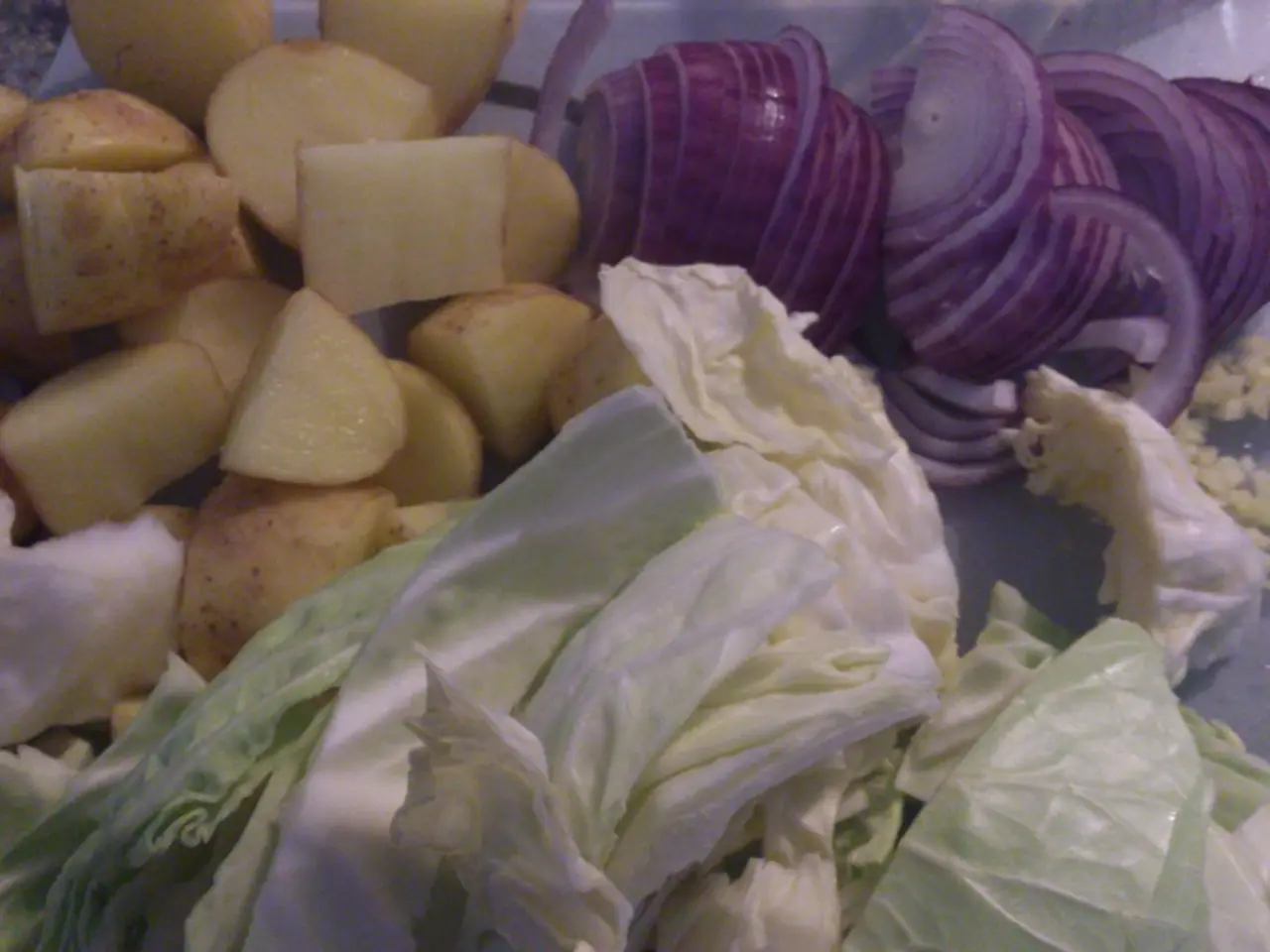Exploring Alternatives for Shallots: Understanding Their Health Advantages and Suitable Replacements For Your Specific Needs
In the kitchen, shallots are a versatile ingredient, adding a sweet and complex flavour to dishes. However, they may not always be readily available or suitable for everyone's dietary needs. Fortunately, there are several alternative options within the Allium family and beyond that can serve as suitable replacements.
Best Shallot Substitutes
When it comes to cooked dishes, leeks, chives, or yellow onions can be used as substitutes for shallots. Each substitute varies slightly in flavor and texture:
- Scallions (green onions) offer a sharper, tangier flavor with crisp whites and soft greens, suitable for soups, stir-fries, and salads. Use the white part as an aromatic base and green tops as garnish or in Asian dishes.
- Leeks offer a milder, sweet, and delicate flavor, ideal for purees, creamy soups, and quiches.
- Garlic chives bring a garlicky taste but can alter the original flavor, so use sparingly in Asian dishes like dumplings or noodle soups.
- Fresh chives provide a mild, grassy onion flavor, good for garnishes and dips but with a short shelf life.
- Yellow onions are a close second to shallots for deeper flavor in sauces and stews, although they are stronger and less sweet.
For raw dishes, red onions or scallions are suitable replacements.
Substitute Options for Allergies and Specific Dietary Needs
For individuals with an allergy to Allium vegetables, carrots can be used as a substitute for shallots. Similarly, people with inflammatory bowel disease (IBD) may find carrots a suitable option to avoid gas-related symptoms.
Health Benefits of Shallots and Allium Vegetables
Shallots and other Allium vegetables (including onions, garlic, leeks, and chives) offer significant nutritional and medicinal advantages:
- Immune support: High in sulfur-containing compounds (e.g., allicin) that boost the immune system and help defend against infections.
- Cardiovascular health: Garlic and related alliums can reduce LDL cholesterol, lower blood pressure by dilating blood vessels, and prevent artery plaque buildup, thus reducing risks of heart attacks and strokes.
- Anti-cancer properties: Compounds in garlic and alliums may reduce risks of stomach, colon, and esophageal cancers by neutralizing oxidative damage from free radicals.
- Digestive health: They have prebiotic effects that promote healthy gut bacteria and anti-inflammatory benefits that ease gastrointestinal issues such as bloating and indigestion.
- Antimicrobial and skin benefits: Garlic exhibits bacterial, antiviral, and antifungal actions that can reduce acne, improve wound healing, and support scalp health.
In summary, shallots and their allium relatives are valuable both for culinary versatility and a range of health benefits linked to their bioactive compounds. The choice of substitute depends on the dish and desired flavor balance, with scallions and leeks often being the closest matches in mildness and texture.
[1] Cook's Illustrated (2021). How to Substitute Shallots. [Online] Available at: https://www.cooksillustrated.com/how_to/articles/how-to-substitute-shallots [2] Healthline (2020). Health Benefits of Shallots. [Online] Available at: https://www.healthline.com/nutrition/shallot-benefits [3] The Spruce Eats (2021). Shallot Substitutes. [Online] Available at: https://www.thespruceeats.com/shallot-substitutes-2243394 [4] McCue, P. (2018). The Health Benefits of Allium Vegetables. [Online] Available at: https://www.ncbi.nlm.nih.gov/pmc/articles/PMC6081188/
- Incorporating leeks, chives, or yellow onions as shallot substitutes can ensure variety in your food-and-drink recipes while maintaining the required diet or dietary needs.
- Scallions can offer a unique flavor and texture for raw dishes when shallots are unavailable, making them a suitable choice in several health-and-wellness lifestyle options.
- When following a specific diet or dealing with allergies, carrots can serve as a reliable shallot substitute, catering to individuals with IBD or Allium allergies.
- Cooking with shallots and other Allium vegetables like onions, garlic, leeks, and chives can yield numerous health benefits, such as immune support, cardiovascular health, and cancer prevention, as highlighted by the science community.
- Within the realm of nutrition, shallots and Allium vegetables exhibit prebiotic effects, digestive health benefits, antimicrobial properties, and various skin benefits that contribute to an overall healthy lifestyle.
- When it comes to detailed recipes for shallot alternatives, Cook's Illustrated, Healthline, The Spruce Eats, and McCue's research can provide a wealth of information on how to maintain flavors and textures while adapting to specific dietary needs.
- With an awareness of various shallot substitutes and their unique flavors, you can unleash a world of culinary possibilities in your skin-care-focused lifestyle, ensuring a harmonious balance between fitness-and-exercise, nutrition, and cooking needs.




